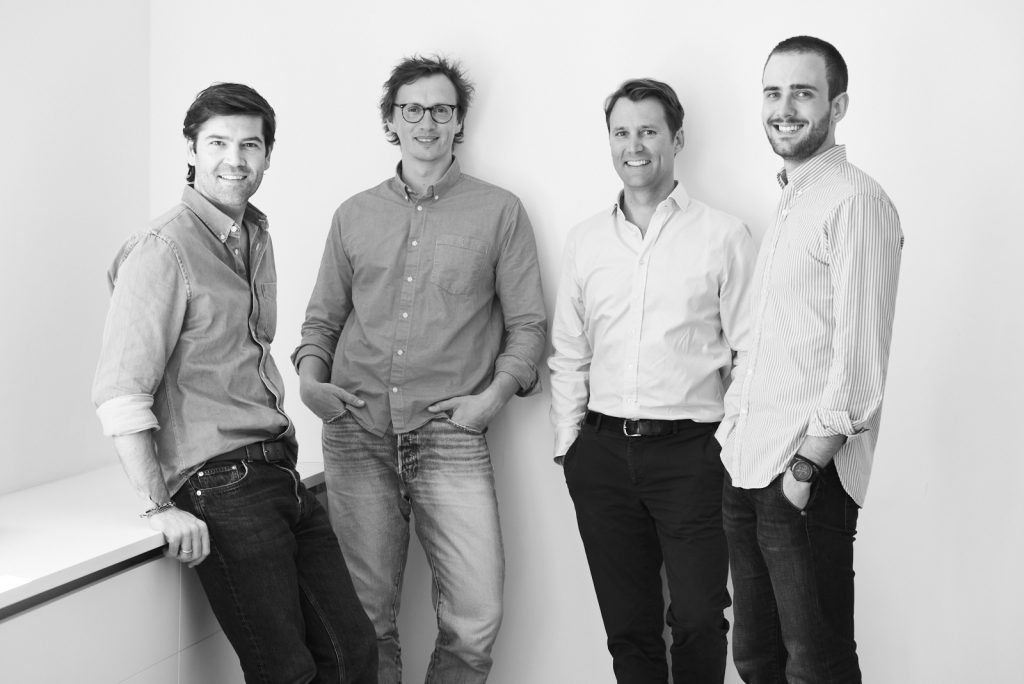We regularly interview experts, insiders, and opinion leaders from the startup world to get their personal perspective on topics such as the founder mindset and startup ecosystems.
This time the interview is with Thomas Oehl, Founding Partner at Vsquared Ventures. They support ambitious founders and start-ups that use cutting-edge technology to question and reinvent the way of doing business. They believe that outstanding technology and radical entrepreneurial thinking are required to master the major challenges of the coming decades.
Tommy, from a VC point of view, tell us what “Corona” means to the start-up world?
Tommy: On the one hand it is the biggest challenge, but also the biggest opportunity. The COVID pandemic has accelerated many transformational processes, in both the economy and in companies, and has proven that many things can be done that were previously considered difficult. Nevertheless, “Corona” has shown: We as Europe need economic sovereignty. The ability to work remotely was rare in German companies but common for players such as Google, Microsoft, or Zoom… We have to get there and use new technologies to take back or maintain our independence. This applies to all areas and start-ups can achieve an enormous amount here.
And how have you fared with your funds?
Tommy: We are fortunate that with our first funds we had already invested exclusively in B2B-Tech and Deep Tech, which have proven to be quite crisis-resistant. Partly because they represent digital infrastructure and are helping to keep things going right now, but also because they are heavily development driven and therefore very independent of current market developments.
Let us look to the future. Which trends will prevail in the coming months and years?
Tommy: Decentralization, automation, and everything that creates efficiency and transparency through digital infrastructure… and in the best case, from all over the place and in a collaborative way! First of all, these are “buzzwords”. What’s crucial are “real” technologies that not only address and solve the biggest existing problems but also represent “real” innovation and help us to secure or even take back our economic sovereignty. In the long run, we can not rely only on the existing small and medium-sized businesses and the automotive industry. We must also stabilize the foundation with new ones. As I said: It was painful to see that it was almost exclusively US companies that made us productive through video conferencing and the like while working from home.
In your opinion, what role can innovation and mindset forgers like the Campus Founders in Heilbronn play?
Tommy: Giving people the opportunity to create something really big and sustainable locally is a great approach and a great chance to try out. The fact that Campus Founders start directly with the mindset could be the right way! When it is possible to support people and entrepreneurial talents, who have the necessary will, through Campus Founders and to develop them even faster, to guide then through making mistakes early enough or to avoid them, then that’s great for everyone. But I believe that real founders entrepreneurs always find a way, completely independent of accelerators, incubators, or hubs. Nevertheless, getting people excited about entrepreneurship at an early stage and creating a mindset of departure is exactly the right path that the Campus Founders have taken.

Teamfoto Vsquared Ventures from left to right: Thomas Oehl, Herbert Mangesius, Benedikt von Schoeler und Patrick Tucci.
What do you mean by that?
Tommy: A central task for us, at Vsquared Ventures, is to push local ecosystems, because besides capital, access to interdisciplinary knowledge has always been an important building block for success. If the region manages to make the concentrated knowledge of successful and traditional entrepreneurs accessible, this will be very interesting for founders, but also an economic driver.
Back to you: Your family founded their company in Künzelsau after the war. How do you see the region there equipped for the digital future?
Tommy: I was there again recently, but I am not there long enough or often enough to be able to make a sound judgment. The effect of very successful regions with many existing world market leaders is often that not so many new companies are founded. People have very good and secure jobs, talent is often tied up directly in the established companies and there is little “digitalization pressure”. But even the established companies have to understand that things will not simply continue. The world is in a state of fundamental change. In addition to fortifying existing companies, our economy and society can only be won over if we are prepared to allow new things to happen. No matter whether it’s an idea, innovation, or technology – I think that the “big ones” are not focusing enough on external innovation. In the past it was often the decisive competitive advantage to do it better oneself, today it is different in many areas.
What would it take for you to invest in your home country? What criteria would you use to do it?
Tommy: Of course I would, but today it doesn’t matter where a company is – and COVID makes it even more irrelevant. The team, the product, or the service, or in our case the technology, must have the potential to make everything better.
Many thanks to Thomas Oehl for the interview. We see ourselves as the mindset for ambitious, big-thinking founders and as “feeders” (in the style of Brad Feld’s Startup Communities) of our start-up ecosystem. All the more we are pleased to have the same mindset of a VC investor as Thommy in this respect.
Are you interested in the view of Frank Thelen? Here is the link to his exclusive interview for Campus Founders.
Don‘t miss what’s going on at Campus Founders! Follow us on Social Media and sign up for our newsletter here!